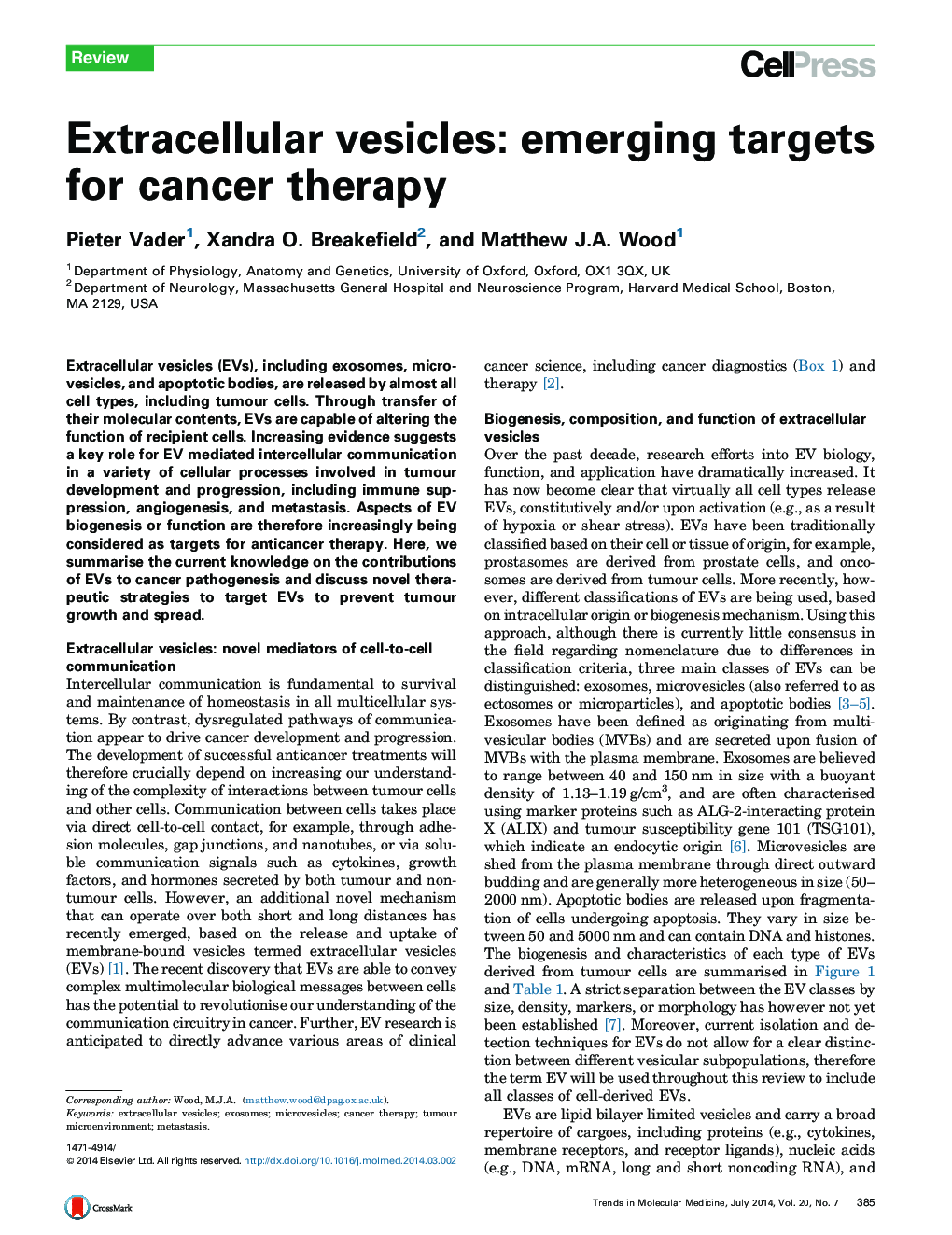| Article ID | Journal | Published Year | Pages | File Type |
|---|---|---|---|---|
| 2838542 | Trends in Molecular Medicine | 2014 | 9 Pages |
•Extracellular vesicles are novel mediators of cell-to-cell communication.•Extracellular vesicles play important roles in regulating all facets of cancer development and spread.•Targeting aspects of extracellular vesicle biogenesis or function could prevent tumour progression.
Extracellular vesicles (EVs), including exosomes, microvesicles, and apoptotic bodies, are released by almost all cell types, including tumour cells. Through transfer of their molecular contents, EVs are capable of altering the function of recipient cells. Increasing evidence suggests a key role for EV mediated intercellular communication in a variety of cellular processes involved in tumour development and progression, including immune suppression, angiogenesis, and metastasis. Aspects of EV biogenesis or function are therefore increasingly being considered as targets for anticancer therapy. Here, we summarise the current knowledge on the contributions of EVs to cancer pathogenesis and discuss novel therapeutic strategies to target EVs to prevent tumour growth and spread.
